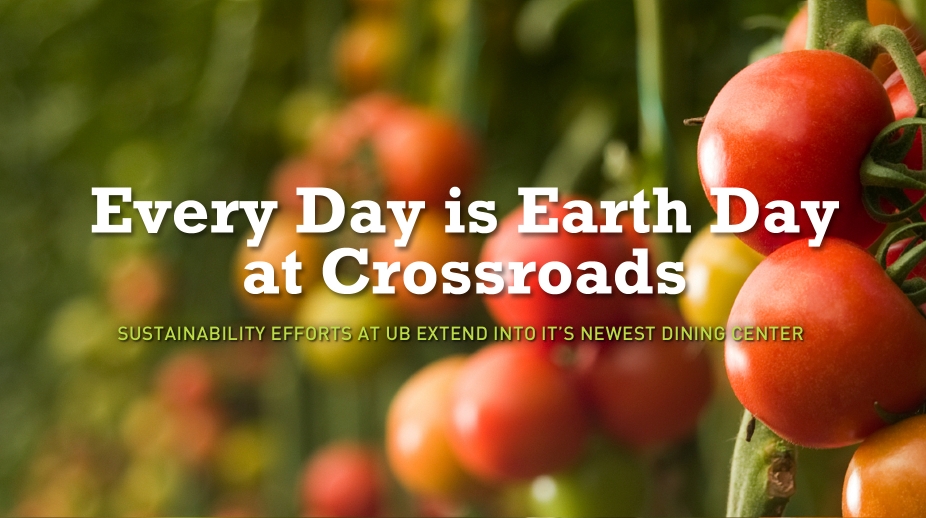 Food service doesn’t end at the table; leftovers and scraps must be disposed of. Doing so in an environmentally responsible way—especially at Crossroads Culinary Center, University at Buffalo’s busiest dining hall where 2,000 students eat daily—can be a daunting task.
Food service doesn’t end at the table; leftovers and scraps must be disposed of. Doing so in an environmentally responsible way—especially at Crossroads Culinary Center, University at Buffalo’s busiest dining hall where 2,000 students eat daily—can be a daunting task.
When university leaders couldn’t find existing models to guide their efforts, they turned to a program started by UB students.
Known as the “canal,” the 32-foot, stainless steel channel moves food waste along its length by recirculating water. It’s the first step in a recycling process before the waste is taken to one of two food composters on campus where it is heated and dehydrated. The result is a soil amendment that is free to faculty, staff, students and community organizations.
Tons of material once dumped in landfills now is used to fortify area gardens. The compost looks like mulch and will support plant growth on its own. By diverting what once was treated as waste into the composters, UB fills significantly fewer trash bins and reduces the truck traffic needed to collect those bins.
Other schools across the country have taken notice, and many have contacted or visited UB to get a closer look at the program.
There are a few other ways UB is working toward becoming one of the nation’s most eco-friendly universities. See some examples below:
 |  |  |
Read more about Earth Week at UB at buffalo.edu.

